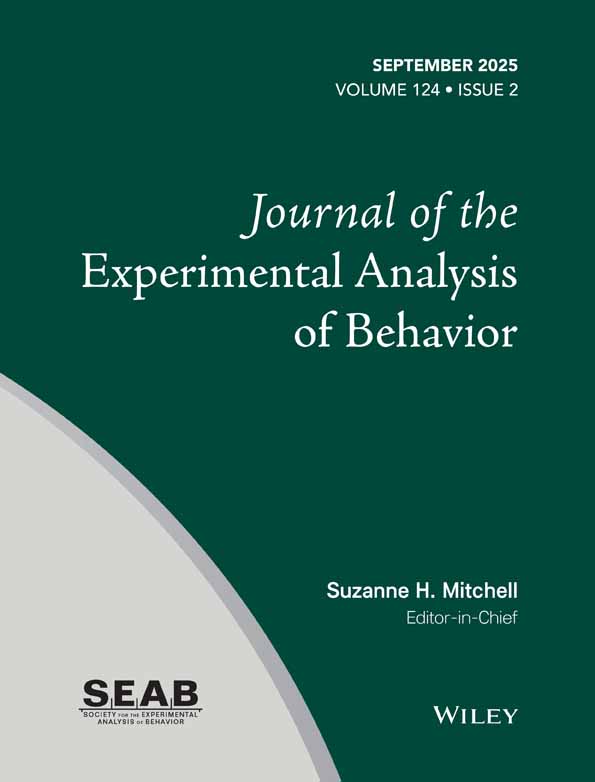RESPONSE DECREMENTS PRODUCED BY EXTINCTION AND BY RESPONSE-INDEPENDENT REINFORCEMENT1
This research was supported in part by a grant from the S.R.C., U.K. and preparation of the manuscript in part by a grant to Professor L. J. Kamin from U.S.P. R.S., U.S.A. I would like to thank Razia Ismail for her invaluable help and also Jennie Caldwell-Smith, Bundy Wilson, Rosemary Smith, and Dr. K. A. Matyniak for their additional assistance. My thanks are also due to Drs. W. VOIlI Saal and R. F. Westbrook for their comments on an earlier version of this paper.
Abstract
The effects of extinction and of response-independent (free) reinforcement in decreasing rates of key pecking by pigeons were compared in single schedule (Phase 1) and multiple (Phase 2) conditions. In both phases, response rates decreased more rapidly with extinction than with free reinforcement conditions. Behavioral contrast was obtained from subjects trained in a multiple schedule involving extinction in Phase 2, whereas subjects trained in a multiple schedule involving free reinforcement showed a slight negative induction effect. Whether subjects experienced extinction or free reinforcement under single stimulus conditions did not affect subsequent performance in the discrimination situation of the second phase. Disinhibition testing was carried out at the end of both phases, but there was no evidence for disinhibitory effects under any condition.




